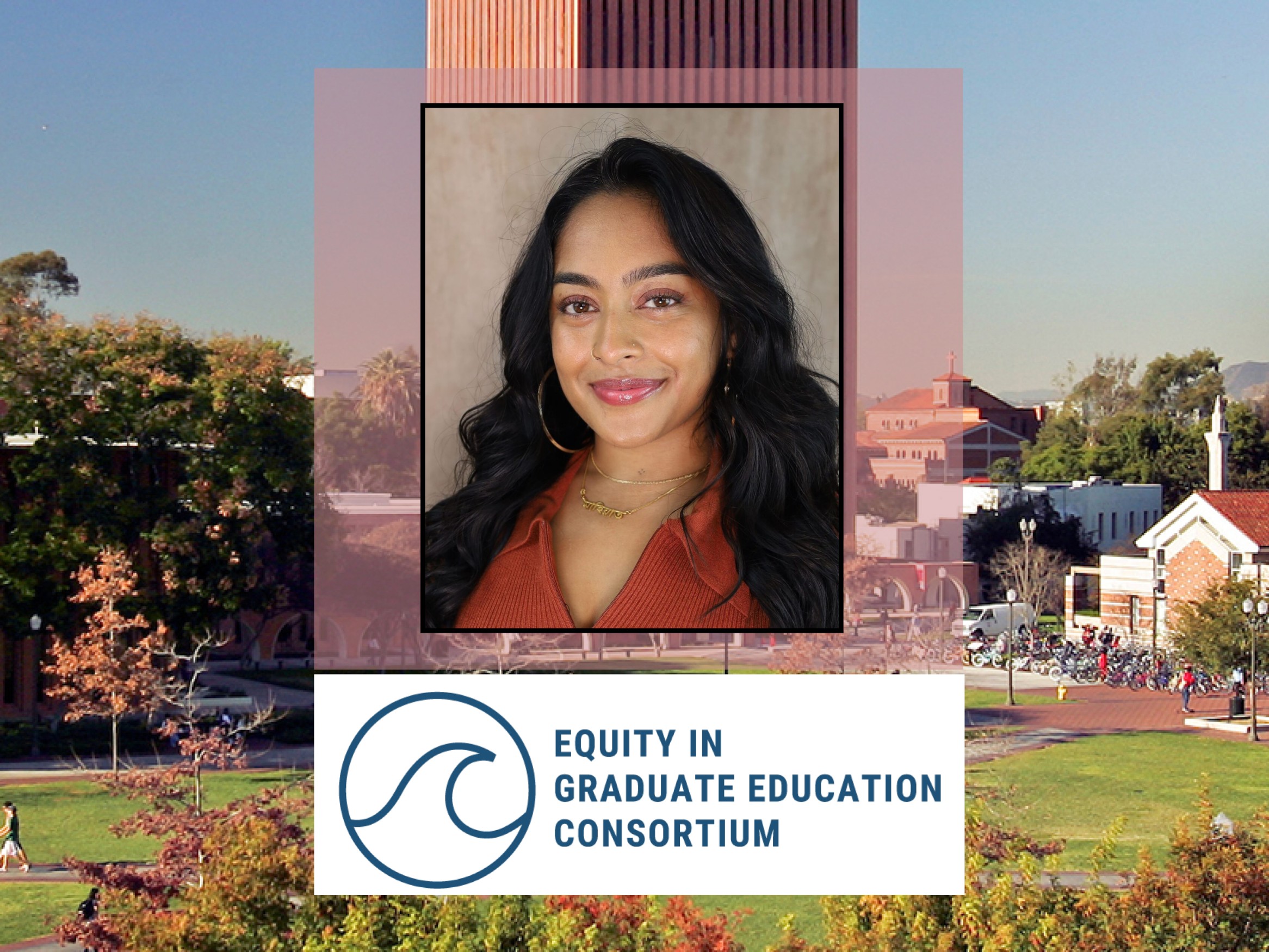By Yasmin Kadir, Equity in Graduate Education Consortium Manager
The last four years have been tumultuous in higher education — our efforts have been marked by unprecedented COVID campus shutdowns, civil unrest, graduate student unionization, the Supreme Court’s decision on race-conscious admissions, campus encampment protests and growing anti-DEI rhetoric and policies. Institutional leaders have been forced to navigate the constantly-evolving landscape while maintaining their commitments to academic excellence, equity and student success.
To put it lightly — balancing these obligations has not been easy for our partners. As a collective, we are witnessing the need to adapt higher education’s traditional approach to navigating change by leaning into community development and support as integral elements. For the Equity in Graduate Education (EGE) Consortium, this entails the creation of intentional spaces for those leading and navigating changes, managing burnout and fostering resilience — across institutions and disciplines.
Power in Community
Since its pilot iteration (California Consortium for Inclusive Doctoral Education, C-CIDE, started in 2018), the EGE Consortium has relied on the Networked Improvement Community (NIC) model of bringing together researchers, practitioners and other partners to address common problems as a scientific learning and improvement community. The Consortium is a research-practice partnership and a learning community dedicated to building systemic change through more equitable admissions, recruitment and mentoring practices.
The power of our community is first evidenced by the rapid growth in membership size and services offered. We successfully scaled from the initial six public California institutions in 2018 to, now, a consortium of 24 public and private institutions across the U.S., with programs ranging from STEM to social science and humanities disciplines. We welcomed 10 new universities as members this year as seed grantees in the Sloan Centers for Systemic Change initiative. Additional members are scheduled to onboard in 2025. During this period, we continued to offer comprehensive services including cross-institutional workshops, community discussions, consultations, tools for self-study and action planning, as well as both virtual and in-person networking opportunities.
More than 1,200 attendees across the 34 EGE workshops held in 2024. This active group engagement reflects the demand from higher ed change-makers for support in strengthening equity efforts, even as they face increased resistance and uncertainty. EGE member meetings and workshops have been places for community building, dialogue and support about how campuses can press forward. As attendees of our annual meeting put it:
"The struggle is real but we are not alone; every institution has similar challenges but we also have distinct issues that are real; leadership seems to be in flux everywhere." and
"I gained community building, a refreshed perspective on equity work, sense of belonging within this diverse group, intellectual stimulation, exploring a new campus in a new town was beautiful."
To adapt to community needs, we have developed two professional development workshop tracks focused on emerging issues: Mentoring & Wellbeing and Equitable Selection Systems. Additionally, we refined our Admissions and Recruitment materials to align with recent policy changes. These three curriculum options were complemented by supplemental community learning events, such as a panel discussion about how PI’s and institutions should navigate new mentorship plan requirements in federal foundations. These are facilitated by partners with subject-matter expertise and are designed to support members in strengthening relevant institutional strategies.
Managing Stress, Avoiding Burnout
The work of advancing equity and systemic change in the current environment places an immense burden on those engaged in it. Educators have historically borne the weight of societal change, serving as agents of transformation, while also being recipients of injustices and serving as models to their students. Managing systemic change while operating within the same systems that resist and regress, often with minimal support and compounded by other obligations, predictably leads to burnout for many faculty, administrative and student leaders. The burden of this work also intersects with our own identities, which disproportionately affects leaders from minoritized backgrounds, who are often expected to do more and with less.
We have witnessed members’ vulnerability about their challenges in implementing meaningful change while striving to maintain their mental and physical wellbeing. Sustainable approaches to change management are increasingly urgent throughout higher education. Dr. Bettina Love reminds us that, “Too often we think the work of fighting oppression is just intellectual. The real work is personal, emotional, spiritual and communal." These words align with the Consortium’s own philosophy of approaching systemic change sustainably.
By continuing to create intentional spaces to honor rest, delegate support and encourage transparency, we aim to serve as fuel and support for the leaders of systemic change in higher education.








